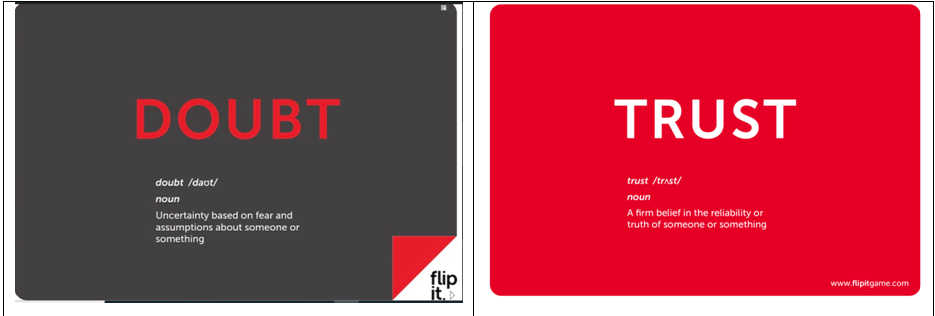A Case Study By Wai Lan Kwan, Life Coach, HONG KONG
How Coaching Supports Management Decision

I was introduced by my human resources department to take a vocational coach program. One of my colleagues knows that I am studying to be a coach. She is having an issue with her staff and would like to have a coach that can help her better understand the situation and help her to make decisions.
The Issue/Challenge
Miss T is the department head of Finance. She received her subordinate Miss C’s resignation last week as she is soon emigrating to the UK. After a few days, Miss C approach Miss T and request Miss T to re-hire her to work remotely in the UK.
Miss T is upset by her resignation and request for re-hire.
The challenges are: –
- Long term work relationship between Miss T and Miss C failed?
- Is it really feasible and efficient to work remotely?
- If working remotely is not possible, what are the next steps?
Coaching Supports: The Approach
I can see that there is an emotional feeling from Miss T and practical issues that she needs to tackle. I use FlipIt to help her to better under the situation. I also apply the positive psychology model and ask powerful questions to help with decision-making.
FlipIt#1 FlipIt is based on the idea that the way we see our world is a choice. The same event can happen to two different people, and they will respond in completely different ways. As coaches, we know that we can’t change the world our clients live in, but we can change how they see it. We also know that some ways of ‘seeing’ are more empowering than others.
Positive Psychology Model #2 This strengths-based approach requires a coach to help the leader expand existing strengths to build positive emotions, creating greater happiness, and in the process, higher levels of performance. While it can sometimes be used to achieve specific goals, this approach is primarily designed to change perceptions and attitudes in a more positive direction.
I ask her to prioritize the challenges to focus on, she would like to first discuss the long-term relationship with Miss C. If the working relationship fails, then she will not consider offering her to work remotely.
 Find It
Find It
She said image #3 reflects her feelings. She did not want to listen, talk and reply to Miss C.
She needs space and time to think clearly before approaching Miss C.
Feel It
She feels hurt, disappointed, anxious, and betrayed.
Miss C only informed Miss T of the decision and her request without seeking her advice.
Miss T is anxious about Miss C’s request to work remotely as she doesn’t know if it is feasible.
I then asked the following questions
What is the value behind that Miss C’s requests to withdraw her resignation and work remotely?
How do you value it?
Miss T said that she understands emigration is a family decision. Miss C withdraw the resign implied that she is honest with her and treasures the working relationship with her. As Miss C can look for a new job and no need to take extra effort to promise to adjust to working the same work hours as Miss T (There are 7 hours timing difference)
She agreed that the long-term relationship is still there.
Frame It
Although Miss T trusted the long-term relationship is still there, she chooses “DOUBT” on working remotely, she has practical queries on the followings:
- There are 7 hours of timing differences in work hours between the UK
- The major responsibility of Miss C is to reconcile the receipts with expense claim requests, it is difficult to check the physical receipt remotely and talk to the requestor if needed

Flip It
I asked her the following questions:
Do you ever talk to Miss C to address your concern?
Miss T said Miss C understand the timing difference and was well prepared for working as per the work hour of Miss T. The decision is also supported by her family.
Regarding the paper receipts, as per the new claim system, the requestor needs to submit the scan copy of the receipt unless the scan copy is not clear, she seldom needs to review the paper receipt.
Miss T said she trusts Miss C in her judgment.
Do you see if there are alternatives to the requests?
Miss T said that it can be a trial period of 3 months to offer to Miss C. In the meantime, she can also hire part-time staff to take up some tasks that are not possible to do it remotely.
Do you have any contingency plans for the arrangement?
Yes, the part-time staff who can take over Miss C’s work is the contingency plan.
What if Miss C fails to commit to what she said?
Temporary, it will be taken up by the part-time staff and she should be able to find a permanent replacement within 2 months.
What are the values that bring to the company if you accept Miss C to work remotely?
As Miss C has been working in the company for over 10 years, she is an experienced employee, and the company treasures her knowledge.
But it will be administrative work to check if the employment can be for overseas, at this moment, not 100% sure legally if we can hire someone to work outside of the company and if will it be tax incurred.
What are the values that bring to you if you accept Miss C’s work remotely?
Miss T said that it can save her time to train a new person to take over the tasks and minimize the risk that the new person does not fit into the job requirement and has poor performance.
Decision Made
Miss T agrees to have a discussion with human resources personnel to see if it is legally workable to hire someone remotely. If it is legally feasible and not complicated in administration, in view of the good long-term relationship, she will offer a probation period of 3 months to Miss C to work remotely. The bi-weekly review meeting will be set up to secure the performance and concern work on timing differences.
Lesson Learns
- It is an advantage to use combined methods and tools in coaching.
I made use of positive psychology as the core approach together with the visual aid tool FlipIt plus asking powerful questions, which make the coaching process more smooth, quick, and easy.
Especially, using FlipIt, it is easier for the Client to express their feelings via the picture she selects and explore their mindset on the issues.
Powerful questions are another technique that can guide clients to have intensive thinking and investigate the issue from a different angle.
- Creating space for the client to express their feeling is important to the success of coaching
It is common that people to have their belief that is not applicable to others. Like Miss T she thinks that she knows Miss C for over 10 years, Miss C should consult her before she makes the decision, and she is upset about the perception if it deviates. Emotion blocked the client from understanding the situation and making decisions. So, it is important to let them express their feelings and calm down before going into a deeper decision.
- The importance of asking open questions
I use a lot of open questions to Miss T, so she cannot just answer yes or no and needs to dive deep into the mindset to find her answer. It helps her to know the reality, to think differently about the situation, and learn something different about herself.
References
https://learnsite.icacoach.com/english-campus/power-tools-course/
https://www.ddiworld.com/blog/types-of-coaching-in-the-workplace
